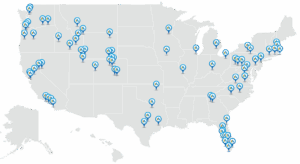Industry Alert: Gasoline Storage Compliance Advisory
Reminder to take action to comply with enhanced vapor recovery equipment requirements before December 23, 2024.
On December 23, 2017, the New Jersey Air Pollution Control rules (N.J.A.C. 7:27-16.3) were amended to include Enhanced Vapor Recovery (EVR) standards, established by California Air Resources Board (CARB). Phase I standards, which primarily involve the tanks, piping, and fill ports, require that affected equipment be “CARB EVR-certified” on or before the deadline of December 23, 2024.
Who is affected by this advisory?
Owners and operators of any gasoline dispensing facility (GDF) constructed in New Jersey before November 9, 2017. A GDF is any stationary facility that dispenses gasoline into the fuel tank of a motor vehicle, which makes it subject to New Jersey Air Pollution Control rules for gasoline transfer operations.
Why is Department of Environmental Protection (DEP) issuing this advisory?
On December 23, 2017, the New Jersey Air Pollution Control Rules (N.J.A.C. 7:27-16.3) were amended to include Enhanced Vapor Recovery (EVR) standards, established by CARB, which aim to improve the effectiveness of gas pump vapor recovery systems, reduce vapor leaks from underground storage tanks, reduce evaporation from hoses and nozzles between use, redesign of nozzles to reduce drips, enhanced diagnostics to alert attendants when vapor recovery equipment malfunctions and improve the long-term reliability of vapor recovery equipment.
What equipment or sources are affected?
GDF equipment that does not meet the CARB EVR-certified Phase I system standards, examples may include:
- Rotatable fill adaptors (dual point systems only)
- Rotatable vapor adaptors (dual point systems only)
- Drop tube and overfill prevention devices (if used by site as overfill prevention equipment)
- Spill bucket and drain/plug valve
- Dust caps (ATG, fill and dry break)
- Tank gauge port components
- Face seal adaptor
- Pressure/vacuum valves
What do you need to do?
GDF owners and operators must determine and maintain documentation that all Phase I equipment has been CARB EVR-certified. Equipment that has not been certified must be replaced with a CARB EVR-certified option by a licensed underground storage tank contractor.
Newly installed EVR equipment must be tested at the time of installation, and annually thereafter. If your facility maintains Phase II equipment, a wet/dry blockage test must also be conducted at least every three years. Prior to any vapor recovery testing, including EVR upgrade testing, email notification must be sent to 14dayustnotice@dep.nj.gov at least 14 days in advance. Required tests include:
- Static pressure performance
- Pressure/vacuum vent valves
- Torque test
What is DEP doing?
DEP inspections conducted at GDF’s will evaluate the vapor recovery system(s) to ensure any Phase II decommissioning activity was properly performed or non-decommissioned systems are being maintained, and the Phase I systems are CARB EVR-certified. Owners and operators who fail to comply with the requirements may be subject to enforcement action and potential penalty.
Apex is ready to assist!
For over 30 years, Apex has helped countless clients manage underground/aboveground storage tanks (USTs/ASTs) risk with adherence to safety, security, environmental, and regulatory guidelines.
Whether you need help planning and installing new tank systems or the repair, replacement, or upgrade of existing ones, our team of credentialed professionals can help.
Apex Associated Press (Apex AP) represents contributions from various authors within the Apex professional community.
Disclaimer
Please note that all content provided on this blog is for informational purposes only and does not necessarily represent the views, opinions, strategy, or methods of Apex Companies, LLC (Apex). Apex makes no representations as to the accuracy or completeness of any information on this site or found by following any link on this site. Apex will not be liable for any errors or omissions in this information nor for the availability of this information. Apex will not be liable for any losses, injuries, or damages from the display or use of this information. Apex reserves the right to edit or delete any comments submitted to this blog without notice to whoever wrote, submitted or posted the comment. Anyone who submits or posts any material to this blog waives any right or claim to privacy with respect to the content submitted or posted. By submitting or posting any content, the person or entity that does so is representing that they believe it to be accurate, have a legal right to the content, and have legal authority to submit or post it. Please do not submit or post anything if this is not the case. Please consider these requirements carefully when submitting or posting comments, photographs or other material relating to third parties who may have privacy, ownership or other rights implicated by the content. Readers are encouraged to seek professional legal, scientific, and/or engineering consultation concerning specific environmental, engineering, or other concerns. If you would like to contact Apex for more information regarding professional consultation to address your specific concerns, click here.






